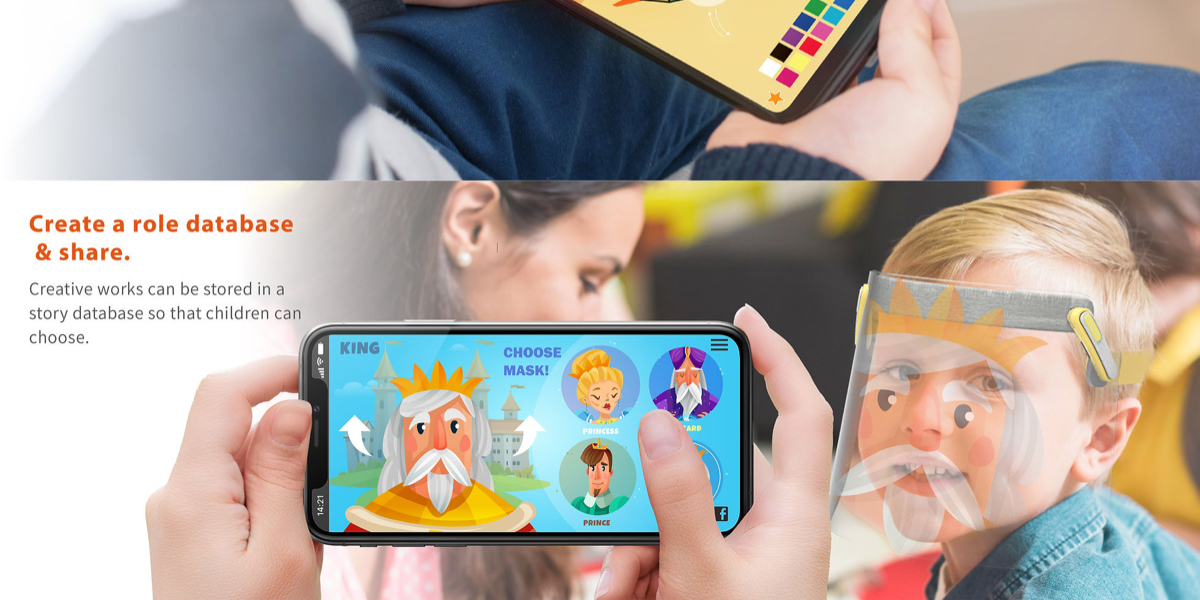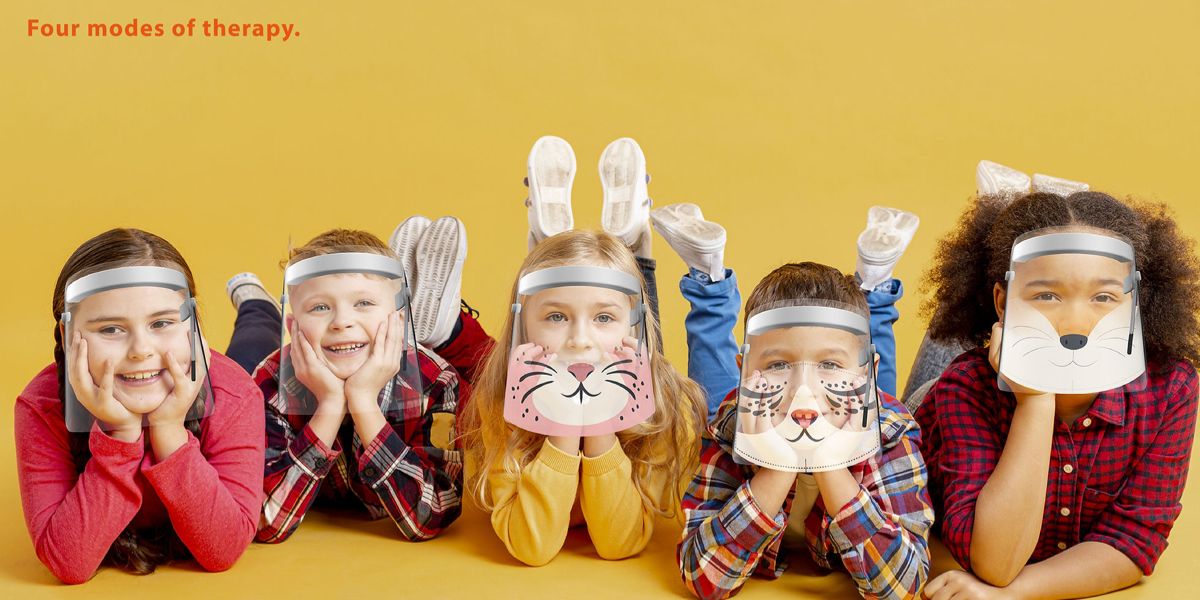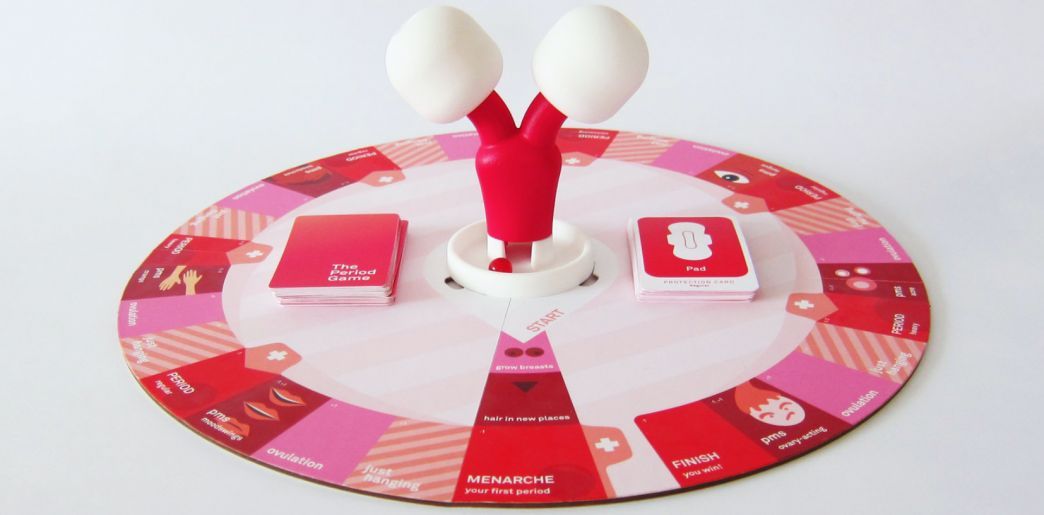AWARD YEAR
2023
CATEGORY
Play & Learning
GOALS
Good Health & Well-being
KEYWORDS
therapy for kids, Drama therapy, mental health and well-being, disease prevention, face masks
COUNTRY
Taiwan
DESIGNED BY
Fang-Ping Hsu & Chien-Chen Lai
WEBSITE
https://lemoncat0514.wixsite.com/mysite-2/home
Wama drama therapy
Mask allowing children to create characters for drama therapy and reducing the spread of pathogens
How does it work?
Children wear Wama drama therapy for group drama activities and reduce the spread and exposure of pathogens during group activities. The psychotherapist conducts dramatic projection interaction therapy with children through Wama drama therapy to guide children with autism and other psychological conditions to reflect their feelings in the role play.
Wama drama therapy has transparent electronic paper for AR role display and internal and external clean layers for quick cleaning, and the voice changer allows children to be someone else. Children can also create unique characters by drawing by hand directly on the mask or drawing on the Wama drama therapy APP for art therapy. They can share their creations with other children via cellphone.
Why is it needed?
Nearly one-third of the children in Taiwan are found to have mental health problems. It is very difficult for children who have experienced significant psychological trauma to describe how they feel, and secondary victimization may happen in the process, especially to children with autism, difficulty in expressing themselves or conducting dialogues, or mental illness.
How does it improve life?
The world is faced with the problems of insufficiency of professional children's drama therapists, difficulties in training talents and inadequate licensing systems. During and after the training process, there is a lack of therapeutic aids that can be flexibly adjusted to the different mental illnesses of children. Children's interactions are prone to the spread of infectious diseases due to excessive contact. However, limiting children's interaction with their peers during their formative years likely leads to future psychological problems, such as social panic and communication difficulties.





